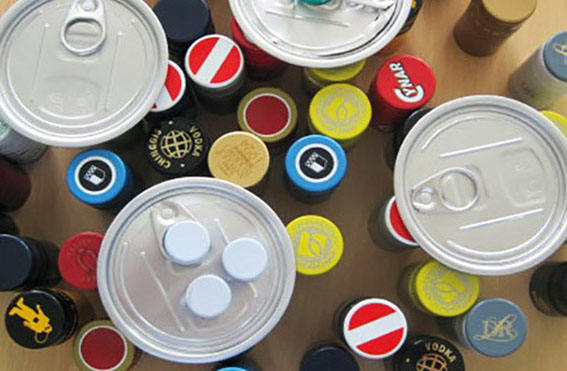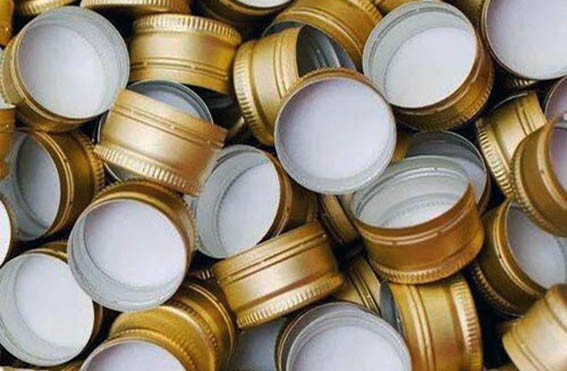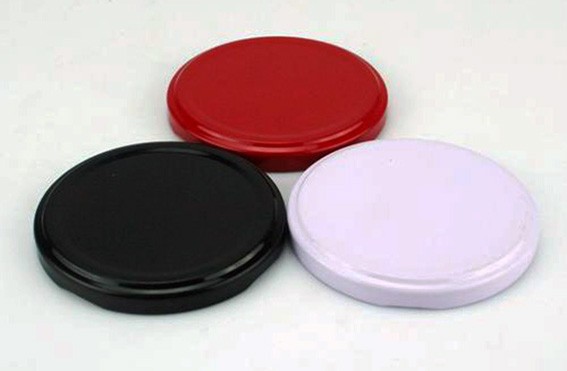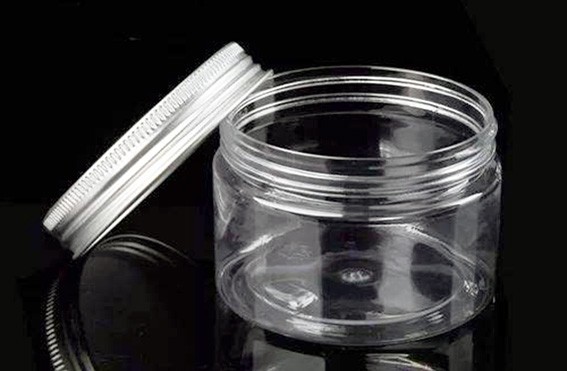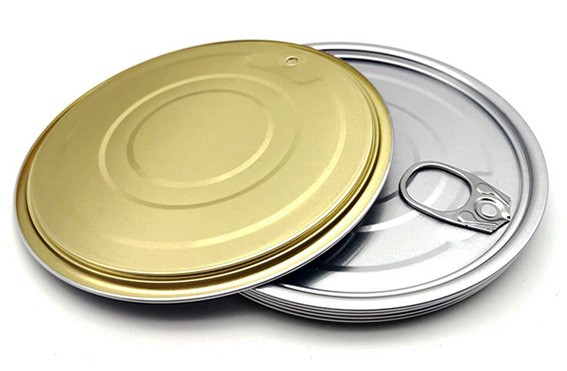8011 Aluminum for Closure PP Caps
Last Updated :Oct. 18, 2024
In the field of packaging, especially in the food and beverage industry, safe sealing is very important. The seal preserves freshness, prevents leaks and ensures the integrity of the product inside. Among the materials used to make these bottle caps, 8011 aluminum has become a strong choice, especially in the production of PP (polypropylene) bottle caps.
8011 aluminum PP cover refers to a cover made of 8011 aluminum material, with a sealing gasket or sealing ring made of PP (polypropylene) attached to the cover. This type of closure is commonly used to seal various types of bottles, jars or containers to prevent the liquid or substance inside from leaking or being contaminated by the outside world.
8011 Aluminum for PP Caps is commonly used in the manufacturing of wine bottle caps, beverage caps, milk powder caps, easy-open caps, etc. PP bottle caps made of 8011 aluminum have the characteristics of good sealing, easy to use, safe and reliable, economical and environmentally friendly, so they are widely welcomed in the market.
The alloy states of 8011 aluminum material include H14, H16, H18, etc. Its physical properties are stable, easy to process and form, and has high strength. Its surface is smooth, without black lines, and its tensile strength is greater than 165 MPa.
Surface: polished, degreased, pre-lubricated, painted
In addition, 8011 aluminum alloy adds Fe-Si elements to the base aluminum, giving it higher performance advantages. It is often used to manufacture aluminum foil with a thickness of less than 0.2 mm, and aluminum coils with a thickness between 0.2 mm and 0.5 mm.
Bus coil: CC (continuous casting), DC (direct casting)
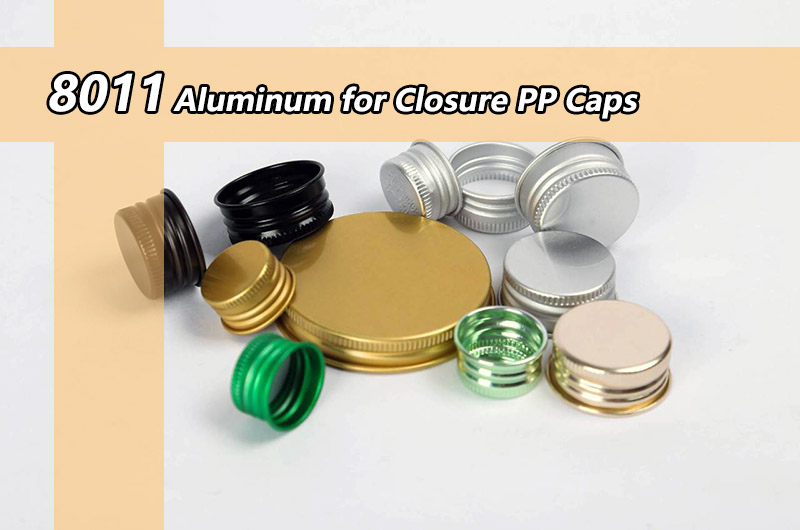
8011 aluminum for closure pp caps is the first choice for your closure products – Ropp caps, PP cap, pilfer proof cap, screw cap, caps and closures, aluminium caps and aluminium closures. Aluminium property of being impermeable to gases and light, as well as the fact that it can be easily formed and decorated, make it a material of choice for closure applications.
Haomei Aluminum's aluminum cover sheets have excellent deep drawing capabilities and paint adhesion, ensuring the highest quality printing of drawings and designs that leave a lasting impression.
8011 aluminum alloy belongs to the 8xxx series of aluminum alloys and is known for its excellent corrosion resistance, formability and weldability. This particular alloy is primarily composed of aluminum, with additional elements such as iron, silicon and other trace metals. Its chemical composition makes it ideal for a variety of industrial applications, including packaging.
8011 Aluminum for Closure PP Caps Performance and Features
- Corrosion Resistance: One of the key properties of 8011 aluminum is its excellent corrosion resistance. This property is critical in packaging applications where exposure to moisture, acids and other environmental factors can compromise the integrity of the seal.
- Formability: 8011 aluminum has excellent formability, allowing it to be easily formed into complex designs without sacrificing structural integrity. This property is particularly advantageous in the manufacture of PP closures, which often need to be precisely formed to ensure a tight seal.
- Compatibility with PP: Polypropylene (PP) is a widely used thermoplastic polymer known for its durability and chemical resistance. 8011 aluminum has good compatibility with PP, making it an ideal choice for manufacturing closures, which are often lined with PP inserts to enhance sealing properties.
- Lightweight: Aluminum is lightweight in nature, which contributes to the overall efficiency of PP capping. Lightweight packaging reduces transportation costs and environmental impact while maintaining product safety and freshness.
- Recyclability: Sustainability is a growing concern in the packaging industry, and aluminum is highly valued for its recyclability. 8011 aluminum polypropylene lids are easily recyclable, contributing to the circular economy and minimizing waste.
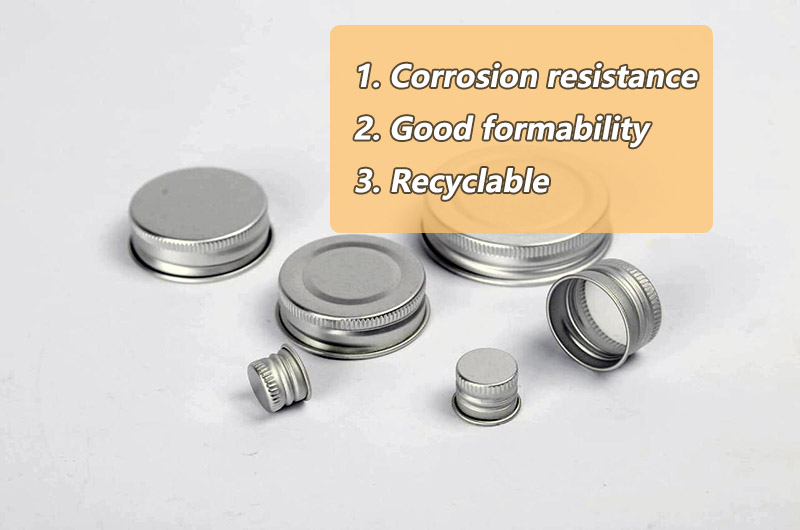
The Advantages of Aluminum For PP Caps Closures 8011 H14
8011 Aluminum for PP Caps has the advantages of light weight, corrosion resistance, good sealing, easy opening, and low cost. At the same time, bottle cap materials have high performance requirements, such as food grade, clean oil removal, few holes, good product shape, good deep drawing performance, and low ear production rate, etc., ensuring excellent quality.
- 1. There are no defects such as cracks, bubbles, indentations, light and dark streaks on the surface.
- 2. Width and thickness tolerances must be strictly implemented as required.
- 3. Its strength, high formability, low earring and printable surface make it ideal for anti-theft caps and vial seals.
- 4. Suitable for sealing wine, cosmetics and beverages, especially suitable for sealing long-neck wine bottles.
- 5. Good tolerances enable our sealing plates to produce higher output per ton.
- 6. Light, bright and economical to recycle.
8011 Aluminum for Closure PP Caps Specifications
| Alloy | 8011 Aluminum Alloy |
| Temper | H14, H16, H24, H26, H44, H46 |
| Thickness | 0.15-0.45mm |
| Type | Sheet/Coils/Foils/Strips |
| Surface Treatment | Aluminum surface is treated by phosphorous chromate and DOS oil treated. |
| Application | Caps, closures and vials for the pharmaceutical industry. Closures ‘pilfer proof’ for the pharmaceutical industry. Lids and containers for the cosmetics industry. |
| MOQ | 1-3 ton per specification |
| Packaging | Export wooden stronger boxes |
| Delivery Time | 25-30 days |
The Properties of Aluminium for PP Caps Closures 8011 H14
Chemical Composition of 8011 Aluminum for PP Caps Closures
| Alloy | 8011 |
| Fe | 0.60~1.0 |
| Si | 0.50~0.9 |
| Cu | 0.1 |
| Mn | 0.2 |
| Mg | 0.05 |
| Cr | 0.05 |
| Zn | 0.1 |
| Ni | - |
| Ti | 0.08 |
| Other | 0.15 |
| Al | Remain |
Mechanical Property for Continuous Casting
| Temper | H14 |
| Thickness (mm) | 0.16~0.23¡¡ |
| U.T.S (Mpa) | 185~205 |
| Elongation (%) | ¨R2 |
Mechanical Property for Direct Casting
| Alloy | 8011 |
| Temper | H14 |
| Thickness (mm) | 0.16~0.23 |
| U.T.S (Mpa) | 125~155 |
| Elongation (%) | ¨R2 |
8011 Aluminum for PP Caps Surface Type
- a. Ordinary calendered aluminum strip
- b. DOS oil lubricated surface treatment
- c. Chrome surface treatment
- d. One side is gold/white/red/blue/black and other colors, and the other side is protective paint
- e. Two-sided varnish/transparent paint
8011 Aluminum for PP Caps are also Chormed and Dos oiled. Chrome plating is a surface treatment method that improves the corrosion resistance, wear resistance and decorative properties of the bottle cap material by forming a layer of chromium compounds on the surface of the bottle cap material. This treatment can increase the service life of the bottle cap material while making it look more beautiful.
- Test items: high pressure sterilization test, Hgcl2 test.
- Tensile strength: 130-155mpa.
- Elongation: 2.5-3.5%.
- Earrings: 2% maximum.
- Packaging: Export standard wooden box.
8011 Aluminum for Closure PP Caps Applications
PP closures made from 8011 aluminum are widely used in various industries, including:
- Food and Beverages: Bottled water, carbonated drinks, juices, sauces and condiments.
- Medicines: Over-the-counter medicines, vitamins and supplements.
- Personal care: cosmetics, lotions and toiletries.
- Food industry: 8011 aluminum PP caps are often used for bottled food, such as jam, honey, condiments, edible oil, etc. These closures provide a good seal, protect food from external contamination, and extend its shelf life.
- Pharmaceutical industry: The pharmaceutical industry often uses 8011 aluminum PP caps to seal pharmaceutical bottles. These closures can effectively protect medicines from air, moisture and light, ensuring the stability and safety of medicines.
- Cosmetics industry: 8011 aluminum PP caps are also widely used to seal containers such as cosmetic bottles and perfume bottles. These closures not only protect cosmetics from contamination but also prevent the loss of volatile ingredients in cosmetics.
- Industrial use: In the industrial field, 8011 aluminum PP closures can be used to seal containers of various chemicals, lubricants, liquid detergents and other products to ensure their safe transportation and storage.
- Beverage industry: Some bottled beverages also use 8011 aluminum PP caps, such as juices, sodas, etc. These closures effectively preserve the freshness and taste of your beverages.
8011 aluminum holds significant promise in manufacturing PP closures, with a unique combination of properties such as corrosion resistance, formability, and compatibility with PP. As the demand for safe and sustainable packaging solutions continues to grow, the versatility and performance of 8011 aluminum make it the first choice to ensure the safety and freshness of packaged products.
8011 Aluminum for Closure PP Caps Manufacturing Process
In the application of bottle caps, the aluminum PP cap CC material 8011 H14 H16 for capping is manufactured using a special process. The production process of 8011 Aluminum for PP Caps includes cold rolling, foil rolling annealing, drawing, bending and straightening, slitting, etc. Multiple processes ultimately produce qualified bottle cap materials.
- 1. Material preparation: Purchase 8011 aluminum plate and prepare for further processing. These sheets can be surface treated to enhance corrosion resistance and improve adhesion to the PP lining.
- 2. Forming: The aluminum plate is then fed into the forming machine, where it is punched or pressed into a cover of the desired shape. In this step, precision is critical to ensure uniformity and dimensional accuracy.
- 3. Lining: PP lining can be inserted into the bottle cap to provide additional sealing performance. These liners are typically heat-sealed to the aluminum cover to create a secure barrier against moisture and contaminants.
- 4. Finishing: Finished closures may undergo additional finishing processes, such as printing or coating, to enhance aesthetics and functionality.


